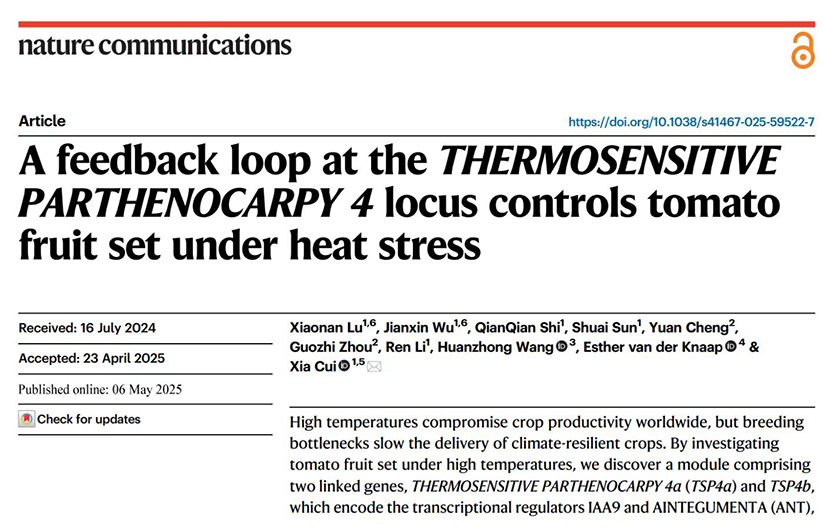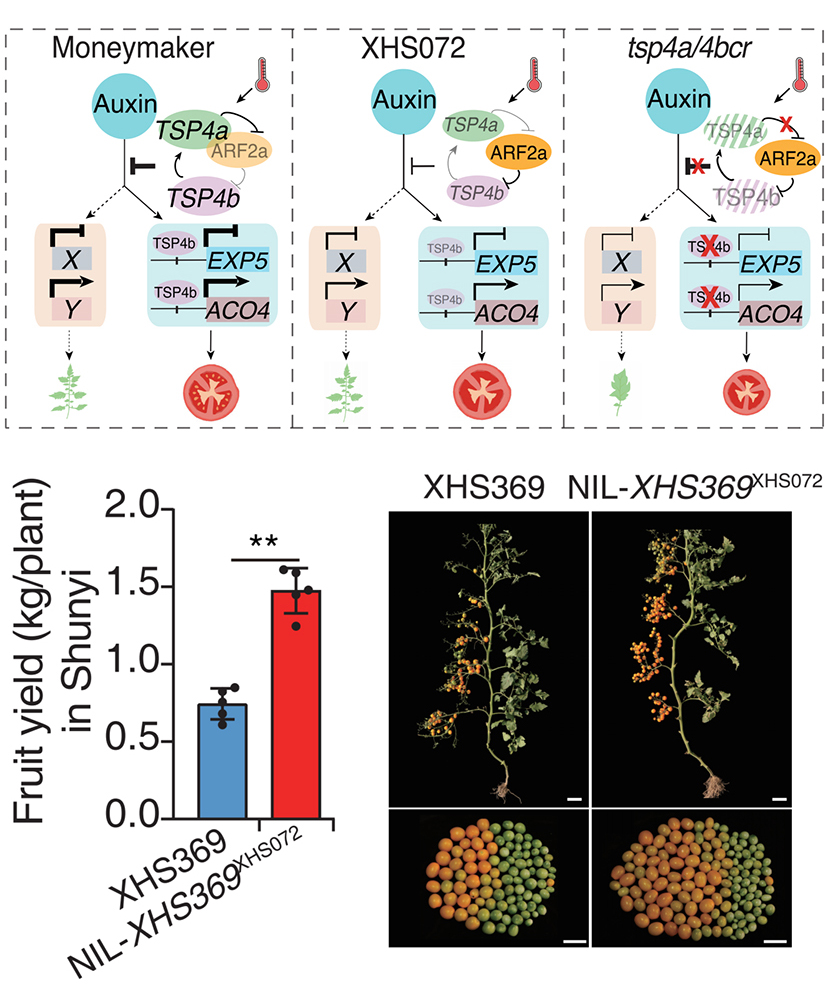Under intensifying global warming, high-temperature stress has become a major bottleneck limiting tomato fruit setting and yield improvement. Parthenocarpy is fruit production occurring without fertilization. It offers the possibility of improving fruit set when environmental conditions are adverse for pollen production and fertilization. Consequently, mining genes responsible for high-temperature-induced parthenocarpy in tomatoes and deciphering their molecular mechanisms have become focal points in breeding research. However, relevant studies remain limited, urgently requiring breakthroughs to accelerate the development of climate-resilient crops. Recently, the Molecular Improvement of Quality research group at the Institute of Vegetables and Flowers, Chinese Academy of Agricultural Sciences, achieved a major breakthrough in tomato thermosensitive parthenocarpy research. Their work provides critical gene resources and theoretical support for breeding high and stable yield tomato varieties. The findings were published online in Nature Communications.

The research team identified a module comprising two linked genes, THERMOSENSITIVE PARTHENOCARPY 4a (TSP4a) and TSP4b, which encode the transcriptional regulators IAA9 and AINTEGUMENTA (ANT), respectively. Reduced transcriptional levels of both genes under high temperatures lead to tomato parthenocarpy. Specific haplotype combinations containing TSP4aXHS072 or TSP4bXHS072 are capable of parthenocarpy under high temperatures. The team discovered that TSP4a and TSP4b form a positive feedback loop upon heat stress to repress auxin signaling in ovaries, where TSP4b directly activates the transcription of TSP4a, while TSP4a interacts with SlARF2a to inhibit the negative regulatory effect of SlARF2a on TSP4b gene transcription. Additionally, this module participates in early tomato fruit development by directly regulating the expression of downstream auxin-responsive genes EXPANSIN 5 (EXP5) and ACC OXIDASE 4 (ACO4).
The team also found that knockout of TSP4a and TSP4b genes produces pleiotropic phenotypes, severely limiting further yield improvement in tomato. In contrast, natural TSP4a and TSP4b alleles not only significantly enhance fruit number and yield but also avoid developmental negative effects, demonstrating unique advantages in tomato breeding.
Based on these research results, the team obtained parthenocarpic materials with normal plant and fruit development through backcrossing and targeted editing of the TSP4a promoter and TSP4b 3'UTR, significantly improving tomato yield under high temperatures. These findings provide important gene resources and technological pathways for breeding selection and genetic improvement of thermosensitive parthenocarpy in tomato.

Dr. Xiaonan Lu and Jianxin Wu from the Institute of Vegetables and Flowers, Chinese Academy of Agricultural Sciences, are co-first authors of the paper, with Researcher Xia Cui serving as the corresponding author. Researchers Guozhi Zhou and Yuan Cheng from the Zhejiang Academy of Agricultural Sciences, Professor Huanzhong Wang from the University of Connecticut, and Professor Esther van der Knaap from the University of Georgia participated in this study. The research was funded by the National Key Research and Development Program (2022YFF1003002) and the Key Project of the National Natural Science Foundation of China (32430097).
Original Link: https://www.nature.com/articles/s41467-025-59522-7